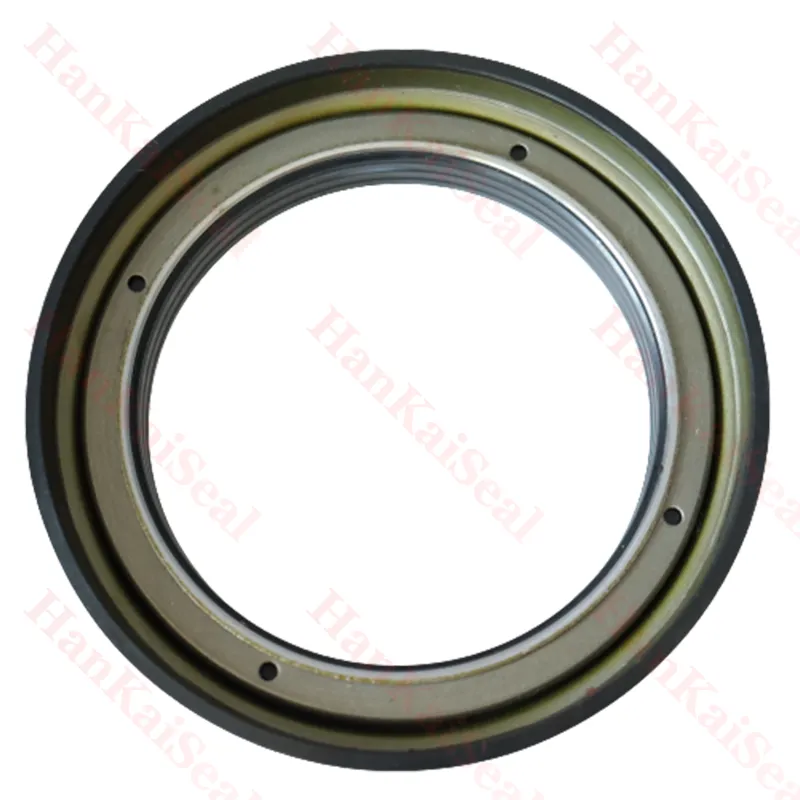Dec . 11, 2024 10:28 Back to list
Effective Strategies for Ensuring Dust Sealing in Various Environments and Applications
The Importance of Dust Sealing in Various Industries
In today's fast-paced world, industries ranging from manufacturing to electronics are constantly seeking ways to enhance efficiency and maintain product quality. One critical yet often overlooked aspect is dust sealing. Proper dust sealing is essential in protecting machinery, products, and sensitive components from the detrimental effects of dust and particulates. This article explores the significance of dust sealing, its applications across various sectors, and best practices for implementing effective dust management solutions.
Understanding Dust Sealing
Dust sealing refers to a protective measure designed to prevent dust and other particulate matter from entering a particular area, equipment, or product. Dust can be composed of various materials, including dirt, industrial debris, and even chemical substances. When these particles infiltrate sensitive areas, they can cause equipment wear, contamination, or malfunction. Effective dust sealing not only protects machinery and systems but also ensures a safer working environment for employees.
Applications of Dust Sealing in Key Industries
1. Manufacturing In manufacturing environments, dust can accumulate quickly, leading to serious operational issues. For instance, in assembly lines involving electronic components, dust can interfere with circuitry and lead to product failures. Implementing dust sealing techniques such as specialized covers, enclosures, and HEPA filters can greatly reduce the risk of contamination and downtime.
2. Pharmaceuticals In the pharmaceutical industry, cleanliness is paramount. Dust sealing helps maintain sterile conditions in production areas where drugs are manufactured. Cleanrooms equipped with advanced dust sealing technologies ensure that airborne particulates do not compromise product integrity, minimizing the risk of contamination and ensuring compliance with stringent regulations.
3. Food and Beverage The food industry is also affected by dust particles, which can harbor bacteria and compromise safety. Dust sealing techniques, such as sealed equipment and protective barriers, are vital in preventing contamination and ensuring that food safety standards are met. Regular maintenance of dust-sealed environments is critical to avoid any breaches that may lead to costly recalls or health issues.
4. Electronics The electronics sector is particularly vulnerable to dust intrusion. Even the smallest particle can cause damage to circuit boards and microprocessor components. Manufacturers implement dust-sealing measures such as dust-tight enclosures and air filtration systems to protect their products and maintain quality.
dust sealing

Best Practices for Effective Dust Sealing
To achieve efficient dust sealing, organizations should consider the following best practices
1. Regular Inspections and Maintenance Equipment and seals should be regularly inspected to ensure that they are functioning correctly. Over time, seals may degrade or wear out, leading to vulnerabilities. Regular maintenance can help identify and rectify problems before they escalate.
2. Employee Training Educating employees about the importance of dust sealing and best practices can significantly enhance overall effectiveness. Training staff on how to handle equipment and maintain cleanliness can reduce the risk of equipment damage.
3. Invest in Quality Sealants Utilizing high-quality sealants and dust sealing materials is crucial. Choose materials that are durable and suitable for the specific environment they will be used in, considering factors such as temperature, pressure, and chemical exposure.
4. Utilize Advanced Technologies Advances in technology have led to more efficient dust sealing solutions. For instance, automated systems with sensors can monitor dust levels and activate sealing mechanisms when necessary, ensuring optimal protection.
Conclusion
In conclusion, dust sealing is an essential consideration for a wide array of industries. By taking proactive measures to implement effective dust sealing strategies, organizations can protect their products, enhance the lifespan of their equipment, and maintain a safer working environment. As industries continue to evolve, integrating innovative dust management solutions will be pivotal in achieving operational excellence and sustainability. With the right approach to dust sealing, businesses can thrive in an increasingly competitive landscape while minimizing risks associated with dust contamination.
-
TCN Oil Seal Metal Ring Reinforcement for Heavy Machinery
NewsJul.25,2025
-
Rotary Lip Seal Spring-Loaded Design for High-Speed Applications
NewsJul.25,2025
-
Hydraulic Cylinder Seals Polyurethane Material for High-Impact Jobs
NewsJul.25,2025
-
High Pressure Oil Seal Polyurethane Coating Wear Resistance
NewsJul.25,2025
-
Dust Proof Seal Double Lip Design for Construction Equipment
NewsJul.25,2025
-
Hub Seal Polyurethane Wear Resistance in Agricultural Vehicles
NewsJul.25,2025
-
The Trans-formative Journey of Wheel Hub Oil Seals
NewsJun.06,2025
Products categories
















